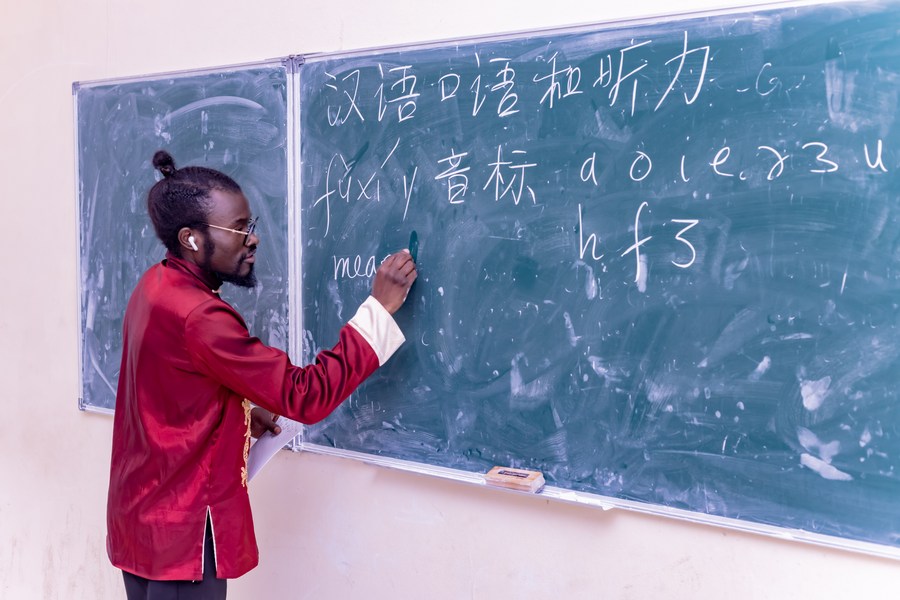28, May 2024
Etoudi and FECAFOOT: The death of high instructions! 0
The bruising fight between FECAFOOT’s President, Samuel Eto’o, and the Minister of Sports, Moelle Kombi, finally played out in public today with the minister’s technical adviser asked to leave FECAFOOT premises.
The matter did not end there. The minister’s appointed coach was also given a beating and reminded that he had an interest in attending the meeting with FECAFOOT officials, an idea which did not go down well with the Belgian who saw his technical staff refused entry into the FECAFOOT building.
In this fight, it is Cameroon’s football which will suffer as Eto’o and minister Kombi engage in a struggle which could have been avoided if the laws had been respected. Cameroon’s laws are, at all levels, like shifting sands or a maze, and this unfortunate situation is hurting Cameroonians.
The frustrating thing is that Eto’o cannot be dismissed even by the country’s president. He was voted while the minister was appointed. In this confusion, FIFA might step in with a normalization committee which will see Eto’o out while the minister could be fired by the president for not posting acceptable results.
The mess playing out in the football sub-sector in Cameroon is simply the tip of the massive iceberg which is buried in the ocean of corruption, incompetence and influence trafficking.
Cameroon appears to be a rudderless ship for decades. For many years, the country has been ruled by decree or what is known in Cameroon as HIGH INSTRUCTIONS, something which clearly points to the fact that the country has drifted into a full-blown dictatorship.
Nobody respects the constitution. Nobody cares about the good running of the system. When a minister wants to implement his private agenda, he immediately invokes the famous high instructions. Everyone sings the president’s praises to hide their crimes and sins, and nothing gets done.
Cameroon is sinking and it appears there is no rescue squad. With the fight between Eto’o and Kombi playing out live, it is clear that those high instructions can be torn and put in the garbage bin. It is clear that the era of HIGH INSTRUCTIONS is coming to an end.
Cameroon needs principled people. The group of hypocrites surrounding the president have steered the country down a chaotic and dangerous path.
If Cameroon has to come out of its current mess which has lasted for almost five decades, a new system needs to be engineered and that system must rules-based with a clear separation of powers.
Cameroon’s highly centralized system has created more problems without even seeking to address old issues. A federal structure, especially a parliamentary system which allows only elected officials to exercise power will not only reduce the type of fights we are now witnessing, it will also reduce abuse and corruption which have been huge constraints on Cameroon’s economic and political development.
Cameroon simply needs a new system. High instructions clearly belong to the past. Repairing Cameroon will be an uphill climb but the job must be done and all those who have participated, directly or indirectly, in reducing Cameroon to an Augean Stable should be clearly cut out of the new system.
By Dr Joachim Arrey




























4, June 2024
Southern Cameroons Rebellion: A major and forgotten crisis 0
In its report on the world’s most neglected crises, the Norwegian Refugee Council highlighted Cameroon, a country struck by two conflicts that barely make the headlines.
The major crises dividing Cameroon remain largely unnoticed on the international agenda, the Norwegian Refugee Council (NRC) noted in its June 3 report. Almost no one mentioned the war or the Lake Chad crisis impacting the two Anglophone regions since 2017.
Anglophone rebellion
The conflict in the Northwest and Southwest Anglophone provinces began in 2017 following a crackdown by security forces on the 2016 protests, which demanded an end to the marginalization of Anglophones in this predominantly French-speaking country. In response to the military and police brutality, an Anglophone independence movement took up arms and attacked government representatives. This led to the military’s mobilization and intervention in the two provinces. Since then, violence has continued between both sides, with each committing atrocities and holding the population hostage.
Schools especially targeted
The Anglophone crisis has claimed over 6,000 lives since 2016, according to Human Rights Watch. The crisis has displaced 638,000 people within the country. Schools are a particular target for the separatists: 2,245 schools, or 36% of the educational institutions in the anglophone region, have been forced to close. The NRC noted that residents suffer terrible hardships, ranging from murder to kidnapping.
Cameroon is grappling with deteriorating security in its northern region bordering Nigeria and Chad. Since 2013, the area has been disrupted by attacks from the Nigerian-based jihadist group Boko Haram. The group’s presence was bolstered by the Cameroonian government’s inability to secure its borders with Nigeria and Chad and its failure to develop the region increasingly affected by climate change, leading to youth unemployment and poverty.
Impact of the crisis in the Central African Republic
Cameroon has also been dealing with the influx of refugees fleeing neighboring countries, primarily the Central African Republic. According to the UNHCR, there are 332,000 refugees, mostly settled in towns and villages in eastern Cameroon. Additionally, nearly 120,000 Nigerian refugees are living in the Far North region. “52% of the refugees are women and girls, and 55% are children,” the UNHCR reported.
“The prolonged crisis is increasingly taking on a socio-economic dimension, with all sectors of the economy affected and rising food prices exacerbating rampant food insecurity. At least 2.5 million people are dangerously short of food,” the NRC observed, noting that only “32% of the humanitarian response plan was covered by international donors, the lowest rate since 2016.” The NRC concluded: “The growing levels of unmet needs, coupled with a lethargic response from the international community, mean that another difficult year awaits Cameroon in 2024.”
Each year, the NRC publishes a report on the ten most neglected crises affecting displaced people worldwide. It aims to highlight the plight of the displaced who rarely make international headlines, receive little or no aid, and are ignored by international diplomacy.
Culled from Crux International by Besong Eunice Nchong